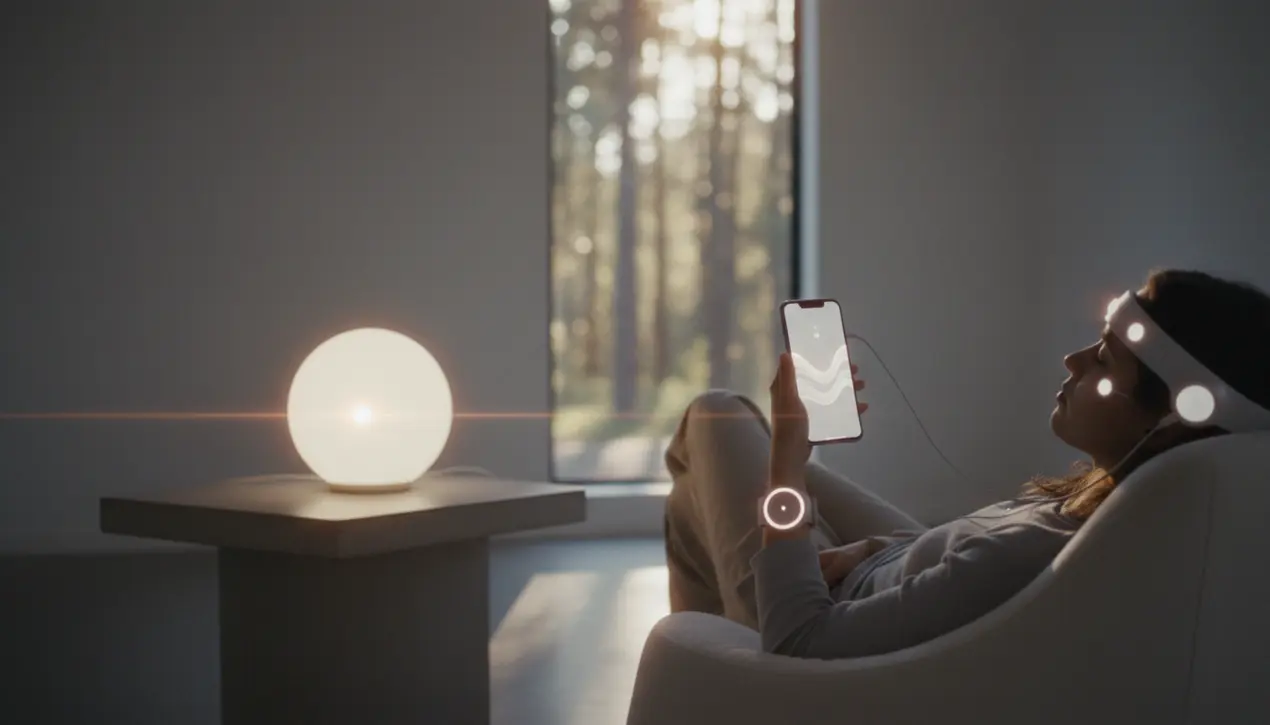
ScienceneuroscienceNeuropharmacology
Can Tech Get Rid of Bad Trips?
MI
Michael Ross
4 hours ago7 min read6 comments
The age-old quest to tame the psychedelic experience is colliding with cutting-edge technology, creating a new frontier in psychoactive exploration that would make even Asimov pause. In this episode of Uncanny Valley, the conversation delves into how modern drug trends are being fundamentally reshaped by their entanglement with tech, moving beyond mere delivery systems to active intervention platforms.Historically, the 'bad trip' has been an unpredictable specter haunting psychedelic journeys, a risk accepted as part of the territory from the Haight-Ashbury era to modern clinical trials with psilocybin. Today, however, a new wave of biohackers and technologists are deploying an arsenal of digital tools aimed at modulating these very consciousness-altering experiences.We're seeing the emergence of sophisticated apps that use biometric feedback—heart rate variability from a smartwatch, galvanic skin response from a sensor—to detect the onset of anxiety or paranoia and then intervene with curated audio guidance or binaural beats designed to steer the neural storm back toward calm. This is not merely a new form of trip-sitting; it's an attempt to engineer set and setting through data, creating a digital container for a profoundly analog experience.The ethical parallels to Asimov's Three Laws of Robotics are immediately apparent: how do we program a system to, above all, prevent psychic harm without fundamentally altering the therapeutic or exploratory intent of the journey? Proponents, often from Silicon Valley's techno-optimist circles, argue this is a logical extension of harm reduction, a way to democratize safer access to substances like LSD or psilocybin as they inch toward decriminalization and medical acceptance. They envision a future where personalized AI trip guides can adapt in real-time to a user's unique neurophysiological signature.Yet, critics, including veteran psychonauts and ethicists, voice deep concerns about the 'Uberification' of the sacred, warning that sanitizing the psychedelic experience could neuter its transformative potential. After all, it is often the challenging, difficult parts of a journey that catalyze the most significant personal breakthroughs.Furthermore, the data privacy implications are staggering; we are talking about the most intimate neural and emotional data being processed by corporate algorithms. As venture capital flows into this nascent 'psychedelic tech' sector, the tension between commodification and care, between control and surrender, becomes the central drama. The question is no longer just 'Can tech get rid of bad trips?' but 'Should it?' and 'At what cost to the messy, unpredictable, and ultimately human nature of consciousness itself?' The path forward requires a careful, policy-informed balance, weighing the undeniable benefits of reducing real-world harm against the risk of creating a sterile, algorithmically-managed spirituality.
#featured
#bad trips
#psychedelics
#technology
#neurotech
#mental health
#Uncanny Valley
Stay Informed. Act Smarter.
Get weekly highlights, major headlines, and expert insights — then put your knowledge to work in our live prediction markets.
Related News
Comments
Loading comments...
© 2025 Outpoll Service LTD. All rights reserved.